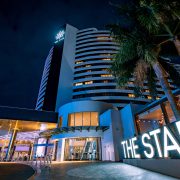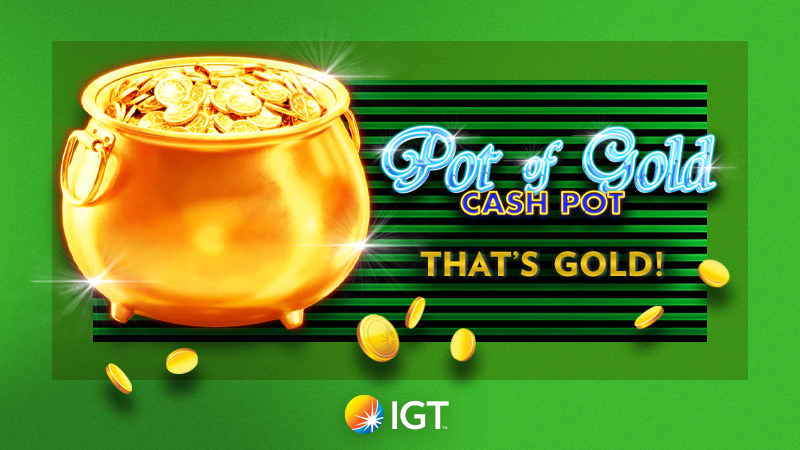LABOR VOWS TO BAN POKIES IN TASSIE
Tasmania’s Labor Party has pledged to remove poker machines from clubs and pubs by 2023 (but allow them to remain in casinos). The move would see 2375 machines being phased out over five years.
Tasmanian Labor leader Rebecca White said that the harm from gaming machines was “widespread” and said she would seize a “once in a generation” opportunity to ban pokies if the party wins the state election in March.
Under the Labor policy, a $55 million package would be implemented to assist affected venues. A “club sustainability fund” of $5 million would “ensure important clubs, like RSLs”, can be viable, Labor said.
The policy includes:
- $20 million “transitional support for venues that choose to surrender their machines prior to 2023”
- $25 million “loan pool to provide long-term, low-interest loans to businesses transitioning to new business models”
- $500,000 in grants to sporting clubs
- $500,000 in “business development advice”
- $4 million for “staff retraining and professional development”
Under a monopoly licence, all poker machines in Tasmania are operated by one company, the Federal Group, which is wholly owned by the Sydney-based Farrell family. The Federal Group runs Tasmania’s two casinos and has owned the gambling licence monopoly since 1973 – including every poker machine in the state — some of which are leased to other venues.
Ms White said Labor would “give notice to Federal Hotels that the current deed allowing poker machines in venues other than casinos will not be extended beyond 2023”.
Labor’s gambling policy stands at odds with the Government, which has said it wants to open up to tender the rights to operate EGMs outside the casino environment after 2023, with a reduction of 150 machines across the state.
In September, a joint parliamentary committee decided against recommending a ban on electronic gaming machines (EGMs) in Tasmanian pubs and clubs, but urged a “significant” reduction in machine numbers.
The committee’s Future Gaming Markets Report found of the gambling industry’s $311 million revenue in 2015 to 2016, the Government recovered $96.4 million in taxes, fees, penalties and levies. It also found gaming revenues contributed 1 percent of state revenue.
Treasurer Peter Gutwein decried Labor’s policy as nanny-ism at its worst, and one which would cost jobs and hurt the economy. “We believe that Tasmanians are in the main responsible, they should be allowed to make their own choices and what Ms White is doing is taking nanny-ism to a new level,” he said.
The head of the Tasmanian Tourism Council, Luke Martin, scoffed at Labor’s measures to assist venues cope with the loss of their gaming revenues and move to a different business model. “The compensation on the table, from my own initial read of it, is a couple of hundred grand per pub,” Mr Martin said. “If you’re a struggling pub in Scottsdale or Rosebery or Dorset, it’s a bit of a challenge to work out how you’re going to reset your business model with the loss of gaming machines for a couple of hundred grand in low-interest loans.
Pub and club managers have also warned that Labor’s policy will close doors and cost jobs.
The Federal Group has called Labor’s policy an attack on the gaming industry which would decimate its company.
Managing director Greg Farrell said Labor “had got it wrong and gone too far” and the company would be seeking legal advice on the implications and review its future in the state.
Mr Farrell accused Labor leader Rebecca White of inexperience and indicated her party would no longer be the beneficiary of political donations. “Political donations we’ve made historically on the basis of helping both parties further articulate their policy positions to the electorate,” he said.
“This is an example of a nanny-state initiative. We believe Tasmanians should have the opportunity to choose legally acceptable products and how they spend their money,” he said.
“We feel upset and concerned not only for ourselves but for the 100-odd publicans operating right around Tasmania, their families and the families that depend on them that work throughout those venues, the suppliers to those venues.
Community venues which depend on poker machine revenue have warned they will not survive under Labor’s policy.
In a statement issued through Clubs Australia, Glenorchy RSL president John Chivers accused the party of taking away the lifeblood of non-profit organisations.
“The Glenorchy RSL Sub Branch Inc is extremely disappointed, on behalf of all clubs throughout Tasmania, on the stance the Tasmanian Labor Party has adopted,” Mr Chivers said.
“It has always been our desire to be able to purchase, own (and) operate our own machines from 2023 onwards.”
He said clubs would take on the ALP with its own campaign.
Gaming Technologies Association Statement
In response to the move, the Gaming Technologies Association (GTA) release a statement yesterday saying that the Tasmanian Labor Party’s attack on poker machines in hotels and clubs was an act of economic vandalism that will cost jobs and strip millions from the Government’s capacity to fund essential services for the community.
“This policy is a disaster for the 3,000i Tasmanians who rely on jobs in the hospitality sector,” GTA Chief Executive Ross Ferrar said today.
“The facts speak for themselves. Expenditure on poker machines in Tasmania has declined significantly in both real and per-capita terms since 2003 but still contributes $31 million to Tasmanian Government revenue.
“Labor’s policy creates a $31 million black hole in the Tasmanian budget, that can only mean cuts to essential services.
“Our Association is calling on the Tasmanian ALP to be honest and open with the Tasmanian people; which services does it propose to cut to pay for its promise?”
“Electronic Gaming Machines in pubs and hotels are a legitimate and legal activity. The overwhelming majority of Tasmanian poker machine users are responsible gamblers.”
“Removing poker machines from all hotels and clubs rides roughshod over their legitimate choices and those who enjoy poker machines responsibly.
“Tasmania has one of the strictest regulatory environments for poker machines in the world. Regulators impose comprehensive conditions at every stage and on every aspect of poker machine design and operation,” Mr Ferrar said.
“All poker machines operating in Tasmania are subject to stringent legislation, regulation and national standards which ensure that machines available for play in Tasmania are safe and enjoyable for consumers.”
“The GTA strongly supports harm minimisation efforts, however, we do not believe banning our products is any more likely to assist problem gamblers, then alcohol prohibition would help problem drinkers.”
Sources: ABC, Intergame, AGBrief, Calvin Ayre, The Mercury, GTA











